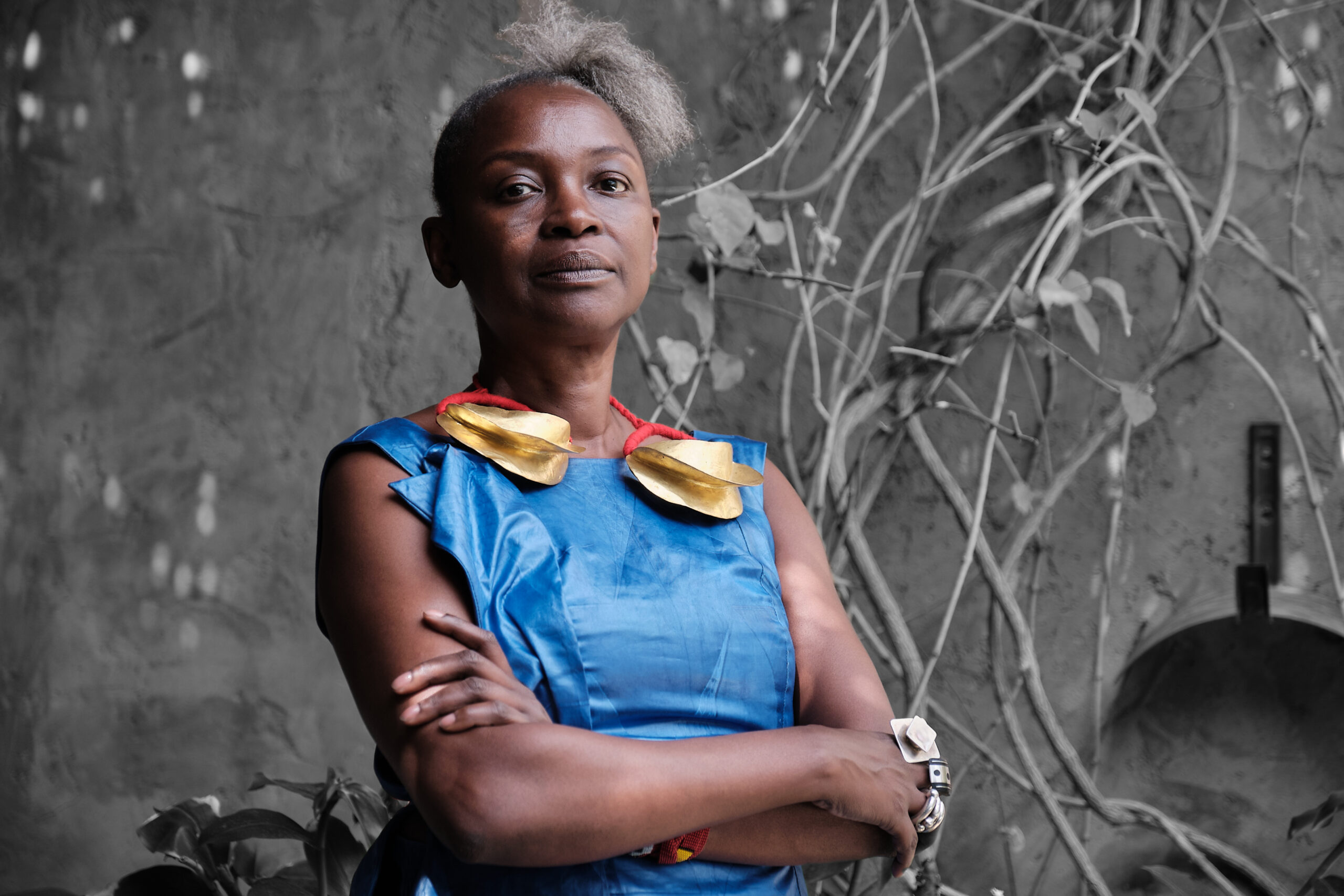
The 12th episode of Nkata Podcast: Art & Processes features a conversation with Koyo Kouoh.
Koyo Kouoh (b. 1967) is a Cameroonian-born curator. She is a leading figure in the Contemporary art world. More specifically, she is one of the pioneers who helped shape and articulate contemporary art practices from the African continent and beyond. Her work is rooted in community and institution-building through collaborations. She is the founder of RAW MATERIAL COMPANY, an art space in Dakar that promotes critical thinking and knowledge production through artistic activities. She is currently the Executive Director and Chief Curator of Zeitz MOCAA in Cape Town.
Her work spans geography in a tentacular manner and no given order. So, suppose one of the biggest challenges of the 21st century is the limitations that come with mapping and shaping of the borders of the world. In that case, she is one of those remapping and tangibly affecting culture through her movement and way of being in the world.
The podcast conversation starts with Koyo recounting her earlier days. Then, prompted by Emeka Okereke, she dwells extensively on the experiences that propelled her towards her vocation as a curator.
She speaks of her encounter with Toni Morrison’s Beloved, the birth of her son; her work as the editor of the German version of Magaret Busby’s Daughters of Africa (1992), and meeting of the late avant-garde Senegalese artist Issa Samb. These encounters – layered unto her upbringing (having been born, raised and “bathed in the care of extra-ordinary women”) in Cameroun before moving, with her mother, to France and Switzerland at the age of 13 – served as the earliest compass in a world and discipline that she would eventually help forge.
Yet, throughout the conversation, Koyo reiterates the half-truth of merely understanding her work simply as a curator.
“This is not a job. We are workers of the spirit”.
The conversation meanders through myriad recollections of Koyo Kouoh’s trajectory while elaborating on how they feed into her professional practice.
“I believe in Professional Genealogy”.
Faithfully keeping steps with her pace of thoughtful word choices, the conversation makes a running thread from Koyo’s dedication to her relationships with artists and young professionals and how that has shaped her notion of institution building.
Koyo’s words are a beacon, just as they are a backbone, for artists and art practitioners interested in the wealth of hindsight.
If not for the nuggets of wisdom scattered across the length of the episode, let it be for her concluding words when she speaks of her responsibility in managing a 9,500 square metres space as the Director of Zeitz Museum of Contemporary Arts in Cape Town. It exemplifies the disposition Toni Morrison refers to as “Careful Optimism”. In other words, we do this for joy. We do this for hope. We do this for posterity. There is nothing to prove beyond that. Yes, the work is cut out for us. Yet, the possibilities of our agency and subjectivity are humbling as much as they are empowering.

